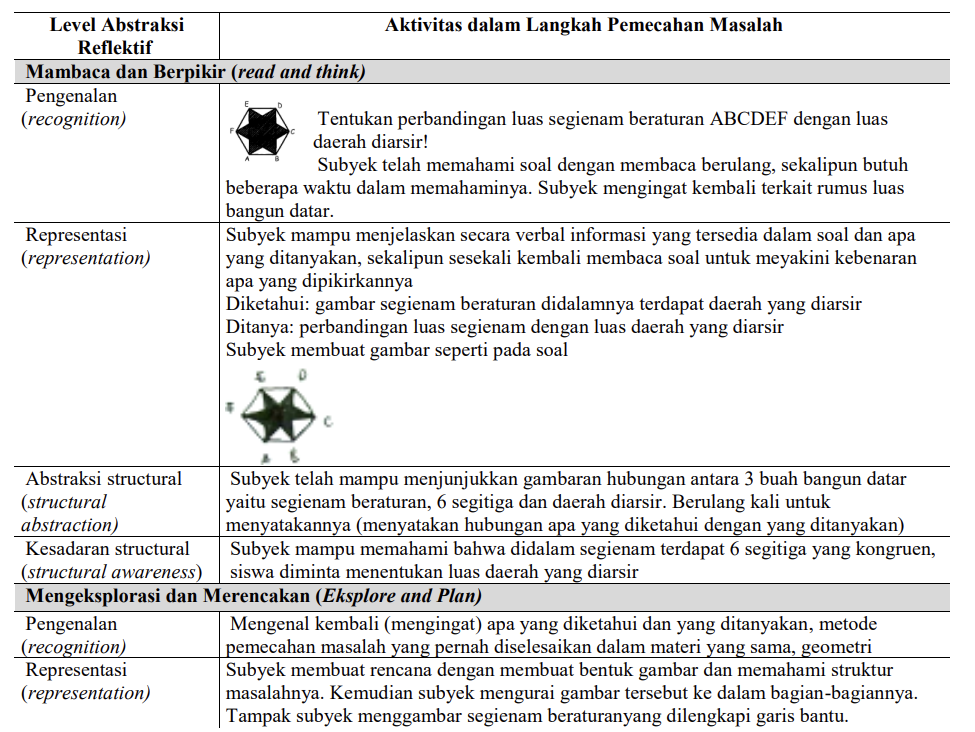Abstraksi Reflektif: Suatu Sudut Pandang Pemecahan Masalah Geometris
Main Article Content
Abstract
This study aims to analyze and describe the process of mathematical reflective abstraction of students with high early mathematics ability in problem solving based on Krulik and Rudnick's steps on geometry material. This research is a case study qualitative research. The research subjects were students of MAN 1 Ngawi who were taken by purposive sampling technique. The data collection technique was done by task-based interviews. The results of the problem solving task and interview data are then presented and analyzed using descriptive analysis. The results of this study indicate that students who are highly capable in every step of problem solving according to the Krulik and Rudnick stages always bring up a complete reflective abstraction which includes recognition, representation, structural abstraction, and structural awareness. Subjects utilize previous knowledge related to trigonometry in solving geometric problems. In reflective abstraction activities, it can be seen how students construct conceptual knowledge, by providing reasons for the decisions made. This is in accordance with the demands of learning in the new normal era, students are required to construct their own mathematical knowledge.

